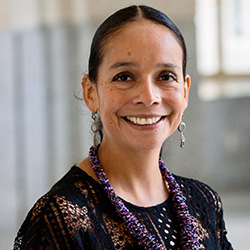In This Story

Just how influential is billionaire philanthropist George Soros?
Vilified by some, praised by others, the Hungarian-born investor and his Open Society Foundations (OSF)—he’s donated $32 billion since 1979—works to support liberal democratic intuitions in 37 countries around the world.
But exactly how much influence has OSF had on those countries?
A new study by Schar School researchers evaluated the global investments by the nonprofit to understand the role of private philanthropy in a range of public policy areas, including education, criminal justice reform, health care, development, civil liberties and civil rights, and democratization. Published in Global Studies Quarterly, the conclusion might surprise some. (Read it here.)
The report was written by Associate Professor Guadalupe Correa-Cabrera, Assistant Professor Lucas Núñez, who led the qualitative study, and Schar School Master’s in Public Policy graduate Hayden R. Ludwig, who studies nonprofit policies at Capital Research Center, a Washington, D.C.-based think tank. Research assistance was provided by Schar School Master’s in Public Policy student Hadiyyah Aida Abdul-Jalaal and Master’s in Public Administration student Lea Mann.
The self-funded study began “after a friendly and informal conversation waiting for the elevator” with Núñez, said Correa-Cabrera, an immigration and border policy expert who had been curious about OSF while researching migrant caravans and mass migrations in the Americas.
And the findings? Well…meh.

“We find that OSF funding does not have much of an impact at the country level in a select number of outcomes that we can measure,” said Núñez. “This does not mean that this funding does not do anything, but that it is at least not detectable at the country level.”
“We have found that whatever Soros’s foundations are doing, they are not having a clear significant impact; actually, they do not seem to have any impact at the macro-level at all, at least amongst the data available for this study,” Correa-Cabrera concluded. “In other words, there is no proof that OSF funding has a substantial contribution at the macro-level in the development of open societies, nor that it is having the negative impacts that some of its critics ascribe to it.”
The report has received attention in the media, including a two-part dissection by the public radio program, The World. Part 1. Part 2.
